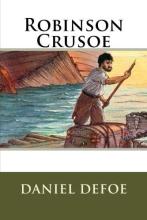
A third post in the 300th anniversary year of Daniel Defoe's novel, Robinson Crusoe (paid link), following on from one on the subject of contentment and a second on bondage of the will.
Crusoe has just been rescued from the sea a second time, and he sits on the beach to reflect. We've not yet reached the point of his conversion in the novel. As he sits, he ponders who made everything around him. His reflections beautifully unpack the logic by which a God who made everything must also be in control of everything. The doctrines of providence and sovereignty follow from creation.
First, he reflects how he failed to see this at first:
"It is true, when I got on shore first here, and found all my ship's crew drowned and myself spared, I was surprised with a kind of ecstasy, and some transports of soul which, had the grace of God assisted, might have come up to true thankfulness; but it ended where it began, in a mere common flight of joy, or, as I may say, being glad I was alive, without the least reflection upon the distinguishing goodness of the hand which had preserved me, and had singled me out to be preserved, when all the rest were destroyed; or an inquiry why Providence had been thus merciful to me; even just the same common sort of joy which seamen generally have after they are got safe ashore from a shipwreck, which they drown all in the next bowl of punch and forget as soon as it is over, and the rest of my life was like it."
Then, a little later, he thinks more correctly:
"After I had eaten, I tried to walk, but found myself so weak that I could hardly carry the gun (for I never went out without that); so I went but a little way, and sat down upon the ground, looking out upon the sea, which was just before me, and very calm and smooth. As I sat here, some such thoughts as these occurred to me:
"What is this earth and sea, of which I have seen so much? Whence is it produced, and what am I, and all the other creatures, wild and tame, human and brutal, whence are we?
"Sure we are all made by some secret Power who formed the earth and sea, the air and sky; and who is that?
"Then it followed most naturally, it is God that has made it all. Well, but then it came on strangely; if God has made all these things, He guides and governs them all, and all things that concern them; for the Power that could make all things must certainly have power to guide and direct them.
"If so, nothing can happen in the great circuit of His works, either without His knowledge or appointment."
"And if nothing happens without His knowledge, He knows that I am here and am in this dreadful condition; and if nothing happens without His appointment, He has appointed all this to befall me.
"Nothing occurred to my thoughts to contradict any of these conclusions; and therefore it rested upon me with the greater force that it must needs be, that God had appointed all this to befall me; that I was brought to this miserable circumstance by His direction, He having the sole power, not of me only, but of everything that happened in the world."
Recent comments